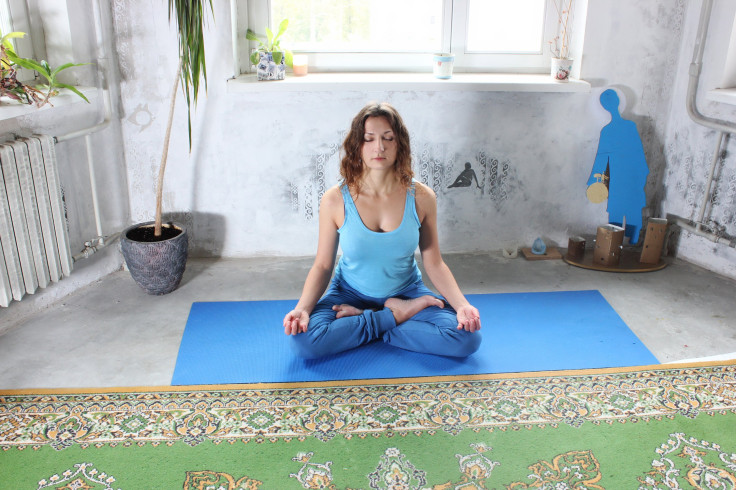No, Yoga Won't Tear Your Achilles Tendon Or Cause Stroke; It's Just As Safe As Any Other Exercise

Yoga has become quite a popular pastime for Americans — nearly 20 million practice it in the U.S. — and its benefits abound. Research has shown that yoga can combat chronic pain, stress and depression , and a variety of other conditions, including heart disease and chemotherapy side effects.
But when the media jumps on touting the benefits of a new practice, there will always be the naysayers to balance it out. In 2012, Pulitzer Prize-winning journalist William J. Broad wrote an article in the New York Times called “How Yoga Can Wreck Your Body.” Broad, who practices yoga himself, also wrote a book called “The Science of Yoga,” in which he explores both the risks and rewards of the practice. While yoga had always helped him manage stress, he explains, it comes with a myriad of health risks, including the rare but dangerous blood clot, joint injuries, and torn ligaments.
Of course, these things can be possibilities — albeit rare ones — in yoga. But a new study published in the American Journal of Epidemiology, and led by Dr. Holger Cramer of the University of Duisburg-Essen in Germany, states that yoga isn’t any more dangerous than other exercises. In the study, Cramer examined randomized controlled trials and found that only two percent of people who did yoga experienced adverse effects. Many of that percentage already had severe diseases, he found.
There are risks associated with running, contact sports, hiking, biking, and even swimming — in short, there are possible adverse health effects involved with any form of exercise. But when we look at yoga generally, Cramer argues, its benefits outweigh its risks.
It’s not that Broad himself is against yoga; he merely points out its possible negative complications. There is one major benefit of yoga, however, that you won’t get in many other exercises, he explains.
“There’s been study after study after study that says you do not get your heart pumping in the way you do in aerobic sports like running, swimming, and spinning,” he told NPR. “On the other hand … yoga has this remarkable quality to relax you, to de-stress you. That means your heart rate goes down. That means if you’re prone to hypertension, that lowers. There are all these wonderful cardio effects that come from the other end of the spectrum: the relaxation of the heart, rather than the pumping-up phenomena that you get from aerobic sports.”
When it comes to any exercise, you’re going to face some risks. But with yoga, at least you know it’s guaranteed to relax you in some way and help boost your mood and mental health.
Source: Cramer H, Ward L, Saper R, Fishbein D, Dobos G, Lauche R. The Safety of Yoga: A Systematic Review and Meta-Analysis of Randomized Controlled Trials. American Journal of Epidemiology. 2015.



























